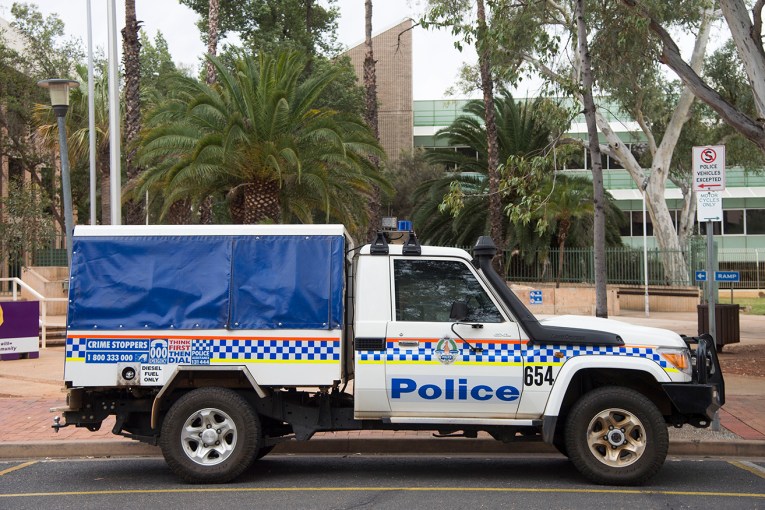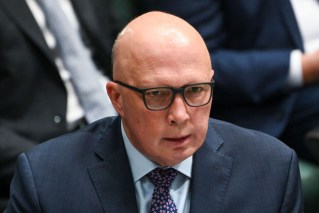Government promises easier access to home loans under credit reforms


The Federal Government will announce changes to credit laws, which it says will make it easier to get a home loan. Photo: AAP
Taking out a home loan could soon be easier as the federal government announces changes to lending laws ‘increase the flow of credit’ to Australians.
Pages of credit rules imposed on banks during the global financial crisis will be abolished which Treasurer Josh Frydenberg says will release more money into the ailing economy.
Mr Frydenberg said current credit regulations were outdated, especially with Australia in a pandemic-induced recession, and the changes would cut red tape.
Under the new rules, banking verification procedures will be reduced, shortening the length of time it takes to secure loans.
This means lenders will be able to rely on the information provided by borrowers, unless there are reasonable grounds to suspect it is unreliable.
Borrowers would also be made more accountable for providing accurate information to lenders, replacing the current practice of ‘lender beware’.
At the same time, the Morrison government will strengthen consumer protections for vulnerable people accessing so-called “payday loans”.
- Related: Financial cliff arrives as JobSeeker payment slashed for 1.6m Australians
- Related: The welfare of Australia depends on the Treasurer listening to this advice
Treasurer Josh Frydenberg said the changes would significantly reduce onerous processes.
“The Morrison government is implementing the most significant reforms to Australia’s credit framework in a decade to increase the flow of credit to households and businesses, reduce red tape and strengthen protections for vulnerable consumers,” Mr Frydenberg said.
“As Australia continues to recover from the COVID-19 pandemic, it is more important than ever that there are no unnecessary barriers to the flow of credit to households and small businesses.
“Maintaining the free flow of credit through the economy is critical to Australia’s economic recovery plan.”
If passed through federal parliament, the changes would come into effect in March.

Treasurer Josh Frydenberg says changes to credit laws will cut red tape.
About $13 billion of credit is extended each month to help Australian families buy their own home, while about $5 billion flows to housing investors.
The Credit Act was put in place more than a decade ago to ensure lenders do not provide unsuitable loans to consumers, but Mr Frydenberg said its “one size fits all” approach was unduly restricting lending.
Since the laws came into effect a raft of other changes have been made in consumer credit protection, including empowering the Australian Securities and Investments Commission to intervene and setting up the Australian Financial Complaints Authority.
But problems persist such as existing mortgage holders facing delays in refinancing even if they have a strong credit record, and sophisticated borrowers being subject to the same stringent obligations as a high-risk borrower applying for a payday loan.

Taking out a loan will be easier to help stimulate the economy, the government says.
Consumers will also be protected from debt collectors, with Australians involved in disputes with debt collectors to appear before the Australian Financial Complaints Authority, an independent dispute resolution body, the ABC reports.
Debt collectors pursuing money will be required to hold an Australian credit licence.
Assistant Treasurer Michael Sukkar said the changes would protect vulnerable Australians.
“These reforms strike the right balance between protecting consumers while maintaining a viable sector to provide these products and build upon the successful implementation of ASIC’s product intervention powers which protect consumers from predatory lending behaviour,” he said.
Daniel Andrews to face quarantine inquiry

Daniel Andrews will be the last witness to front Victoria’s hotel quarantine inquiry.
Premier Daniel Andrews is likely to be grilled over the fateful decision to hire private security guards for Victoria’s hotel quarantine program.
Mr Andrews is set to appear as the last witness before the inquiry on Friday.
It comes after three government ministers, the chief commissioner of police, the chief health officer and senior public servants have all pleaded ignorance in the decision to use the guards.
Health Minister Jenny Mikakos on Thursday became the third government minister to deny involvement following Jobs Minister Martin Pakula and Police Minister Lisa Neville on Wednesday.
The inquiry has heard the decision was definitely made on March 27, the day national cabinet announced the hotel quarantine program.
The premier held a press conference at 3pm that day, where he told reporters private security would be involved in monitoring compliance with quarantine arrangements.
Staff from the Department of Jobs, Precincts and Regions weren’t told to begin looking for security guards until a meeting at the state control centre at 4:30pm.
At that meeting, Victoria Police Assistant Commissioner Mick Grainger said it was Mr Ashton’s preference that guards be the “first line of security”.
Mr Ashton, meanwhile, told the head of the Australian Federal Police the ADF would be doing transfers to the hotels, where private security would be used as part of a “deal set up by our DPC (Department of Premier and Cabinet)”.
Mr Andrews has repeatedly been questioned at his daily press conference as to why the ADF wasn’t involved in the state’s program.
He told a state parliamentary committee in August that it was “fundamentally incorrect to assert that there was hundreds of ADF staff on offer and somehow someone said no”.
“That’s not, in my judgement, accurate,” he said.
“It’s been provided in limited circumstances in NSW, not to provide security as such but to provide transportation from the airport to hotels.”
At one of his daily press conferences in August, Mr Andrews said ADF personnel were offered for “compliance monitoring and checking of self-isolation orders”.
The inquiry has since heard Victoria rebuffed multiple offers of assistance.
Victoria’s second wave of coronavirus, which resulted in more than 18,000 new infections and 750 deaths, can be traced back to outbreaks at two Melbourne hotels used in the quarantine program.
-with AAP








